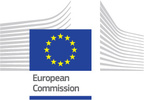News Release from European Commission
Wind Industry Profile of
Air quality: Commission takes action to protect citizens from air pollution
The Commission is providing national, regional and local actors with practical help to improve air quality in Europe, and stepping up its enforcement against 7 Member States who have breached agreed EU rules on air pollution limits and type approval for cars.
Commissioner for Environment, Karmenu Vella said: “The decision to refer Member States to the Court of Justice of the EU has been taken on behalf of Europeans. We have said that this Commission is one that protects. Our decision follows through on that claim. The Member States referred to the Court today have received sufficient 'last chances' over the last decade to improve the situation. It is my conviction that today's decision will lead to improvements for citizens on a much quicker timescale. But legal action alone will not solve the problem. That is why we are outlining the practical help that the Commission can provide to the national authorities' efforts to promote cleaner air for European cities and towns."
Commissioner for the Internal Market, Industry, Entrepreneurship and SMEs El?bieta Bie?kowska added: "We will only succeed in fighting urban air pollution if the car sector plays its part. Zero emissions cars are the future. Meanwhile, complying with emissions legislation is a must. Manufacturers that keep disregarding the law have to bear the consequences of their wrongdoing."
In a Communication entitled 'A Europe that protects: Clean air for all', adopted today, the Commission outlines measures available to help Member States fight air pollution. The Commission also underlines the need to step up cooperation with Member States by engaging with relevant authorities in new 'Clean Air Dialogues', and by using EU funding to support measures to improve air quality.
In addition, the Commission is today referring France, Germany, Hungary, Italy, Romania and the United Kingdom to the Court of Justice of the EU for failing to respect agreed air quality limit values and for failing to take appropriate measures to keep exceedance periods as short as possible. The Commission is also issuing additional letters of formal notice to Germany, Italy, Luxembourg, and the United Kingdom on the grounds that they have disregarded EU vehicle type approval rules.
Measures to fight air pollution
The measures proposed by the Commission today rest on three main pillars: air quality standards; national emission reduction targets; and emission standards for key sources of pollution, for example from vehicle and ship emissions to energy and industry.
To address air pollutant emissions from traffic, the Commission will further strengthen its work with national, regional and local authorities on a common integrated approach for urban vehicle access regulations, under the EU Urban Agenda.
In addition, the Commission has led a wide-ranging reform to ensure that air pollutant emissions from vehicles are measured in real driving conditions (see FAQs).
Stepping up enforcement
6 Member States referred to Court
The Commission is taking action to address the significant and persistent exceedances of limit values for two key pollutants with health impacts: nitrogen dioxide, which is mostly a result of road traffic and industry, and particulate matter, which is mainly present in emissions from industry, domestic heating, traffic, and agriculture.
The Commission decided to refer France, Germany, and the United Kingdom to the Court of Justice of the EU for failure to respect limit values for nitrogen dioxide (NO2), and for failing to take appropriate measures to keep exceedance periods as short as possible. Hungary, Italy, and Romania are referred to the Court of Justice over persistently high levels of particulate matter (PM10). The limits set out under EU legislation on ambient air quality (Directive 2008/50/EC) had to be met in 2010 and 2005 respectively.
This step follows an Air Quality Ministerial Summit convened by Commissioner Vella, on 30 January 2018, as a final effort to find solutions to address the serious problem of air pollution in nine Member States. The 6 Member States in question did not present credible, effective and timely measures to reduce pollution, within the agreed limits and as soon as possible, as required under EU law. The Commission has therefore decided to proceed with legal action.
As regards the Czech Republic, Slovakia, and Spain the measures being put in place or planned, as communicated to the Commission following the Air Quality Ministerial Summit, appear to be able to appropriately tackle the identified gaps, if correctly implemented. For this reason the Commission will continue to closely monitor the implementation of these measures as well as their effectiveness in redressing the situation as soon as possible.
Infringement procedures escalated for 4 Member States
The Commission is taking further steps in its infringement procedures against 4 Member States on the grounds that they have disregarded EU vehicle type approval rules. The Commission decided today to issue additional letters of formal notice to Germany, Italy, Luxembourg, and the United Kingdom.
EU type-approval legislation requires Member States to have effective, proportionate and dissuasive penalty systems in place to deter car manufacturers from breaking the law. Where such a breach of law takes place, for example by using defeat devices to reduce the effectiveness of emission control systems, remedial measures – such as recalls – must be ordered and penalties must be applied (Articles 30 and 46 of Directive 2007/46 and Article 13 of Regulation 715/2007).
The Commission opened infringement proceedings against Germany, Luxembourg and the United Kingdom in December 2016 with regard to Volkswagen Group and sent complementary letters of formal notice in July 2017 requesting further clarifications.
Today, the Commission is sending additional letters of formal notice to request more information on the national investigations and legal proceedings related to these infringements. In addition, following the discovery of new cases of engine-management irregularities in several diesel cars (Porsche Cayenne, Volkswagen Touareg and several Audi A6 and A7 vehicles) the Commission asks Germany and Luxembourg, as the competent type-approval authorities, which remedial measures and penalties are envisaged. The Commission is also requesting clarifications from the United Kingdom on planned national legislation.
In May 2017, the Commission launched an infringement procedure against Italy for failure to fulfil its obligations under the EU vehicle type-approval legislation with regards to Fiat Chrysler cars. In the meantime, Italy took corrective measures by ordering the Fiat Chrysler Automobiles group to conduct a mandatory recall in the EU. Today, as part of the ongoing exchange, the Commission requests additional information on the concrete corrective measures taken and penalties applied.
An additional letter of formal notice constitutes an official request for information. The Member States now have two months to respond to the arguments put forward by the Commission; otherwise, the Commission may decide to send a reasoned opinion.
Background
In the European Union, air quality has generally improved over the last decades, often thanks to joint efforts by the EU and national, regional and local authorities. Yet, the quality of life of many EU citizens remains unacceptably hampered. Air pollution directly causes both chronic and serious diseases such as asthma, cardiovascular problems and lung cancer.
Today's referrals concern exceedances of air quality standards:
Nitrogen dioxide (NO2):
- Germany – in 26 air quality zones, among them Berlin, Munich, Hamburg and Köln; annual concentrations reported in 2016 were as high as 82 µg/m3 against a limit value of 40 µg/m3 (in Stuttgart);
- France – in 12 air quality zones, among them Paris, Marseille and Lyon; annual concentrations reported in 2016 were as high as 96 µg/m3 (in Paris);
- The United Kingdom – in 16 air quality zones, among them London, Birmingham, Leeds, and Glasgow; annual concentrations reported in 2016 were as high as 102 µg/m3 (in London).
In total, there are 13 infringement cases pending against Member States (Austria, Belgium, the Czech Republic, Germany, Denmark, France, Spain, Hungary, Italy, Luxembourg, Poland, Portugal, and the United Kingdom).
Today's decision on Germany, France and the United Kingdom are the first ones to be referred to the Court; all three cases follow Reasoned Opinions communicated in February 2017.
Particulate matter (PM10):
- Italy – in 28 air quality zones, including in the regions of Lombardy, Piemonte, Lazio and Veneto, the daily limit values have been persistently exceeded, in 2016 on up to 89 days;
- Hungary – in 3 air quality zones, Budapest, Pecs and Sajó valley, the daily limit values have been persistently exceeded, in 2016 on up to 76 days;
- Romania – in the agglomeration of Bucure?ti, the daily limit values have been persistently exceeded, ever since the EU law became applicable to Romania, and in 2016 on 38 days.
In total, there are 16 infringement cases pending against Member States (Belgium, Bulgaria, the Czech Republic, Germany, Greece, Spain, France, Hungary, Italy, Latvia, Portugal, Poland, Romania, Sweden, Slovakia, and Slovenia). Bulgaria and Poland have been found in breach of EU legislation by the European Court of Justice, on 5 April 2017 and 22 February 2018, respectively.
Today's decision follows a reasoned opinion sent to Italy in April 2017, an additional reasoned opinion sent to Romania in September 2014, as well as an additional reasoned opinion sent to Hungary in March 2014.
In all cases of exceedance of limit values set by EU law on ambient air quality (Directive 2008/50/EC), Member States have to adopt air quality plans and ensure that such plans set appropriate measures so that the exceedance period can be kept as short as possible. Guided by the principle of subsidiarity, EU legislation gives Member States the choice of which means to use to comply with the limit values.
- Source:
- European Commission
- Author:
- Press Office
- Link:
- europa.eu/...
- Keywords:
- European Commission, air pollution, citizen, justice, court






















